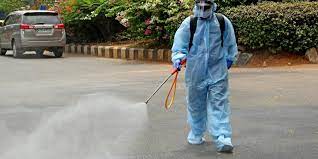Intense random testing for coronavirus along with stringent monitoring by the recently set up Mohalla Nigrani Samiti (MNS)—small groups at district levels comprising the zonal level officials, Asha (accredited social health activists) workers, residents, medical and sanitization staff and police officers—have helped Uttar Pradesh contain the spread of the Covid-19 pandemic.
Instead of a top down approach, the Yogi Adityanath government has put in place mechanisms which are executed at the local district levels. UP, India’s most populous state, is a success story in managing the spread of the disease with fewer than 20,000 Covid-19 cases so far. The state has also registered a relatively low number of deaths with the tally lower than 600 as on June 22. In comparison Maharashtra had Covid-19 over 6,000 fatalities and the national capital Delhi, more than 2,000.
Not just its population and its high density, the state also has one of the largest numbers of migrant laborers, many of whom returned during the course of the nationwide lockdown. Notwithstanding the naysayers, the UP government took preventive measures right at the start which have been strictly adhered to by the local administration. Manawwar Hasan, urban health coordinator of Saharanpur in UP said that the screening of Covid 19 patients started right after the outbreak of the disease.
“One of the main reasons for our success is that we started very early, even before various teams for Covid19 containment were set up. Random testing right from the beginning and immediate quarantines have helped in containing the spread. The Asha workers have had a huge role to play in this,” Hasan said.
He added that people’s awareness on the disease has also gone up. “In case a person is infected, s/he calls us immediately without any delay and this has helped in early detection and containment,” Hasan said. The MNS were set up in mid-May. Asha workers have also been working independently. “They have been regularly monitoring homes of the infected and those returning from outside.
They keep their detailed health record,” a senior executive engaged with a non-governmental organization (NGO) in the state, who did not wish to be identified, told IN. A large number of temporary quarantine homes, inside marriage halls and community centres, have also been set up to ensure that migrants who return home, can be housed for days. The centres are equipped with “decent” arrangements with beds and running kitchens.
Several committees have been set up to monitor the return of migrant laborers and assist them in their medical check-ups before they are let free. The executive added that Asha workers have also taken up the responsibility of tracking down anyone who is found to have left the quarantine centres.
“In case somebody refuses to undergo Coronavirus test, the police can take immediate action,” the executive added. A team comprising officials from the medical fraternity, law enforcement, and local administration have also been set up to receive migrants arriving by trains. The migrants are allowed to leave the railway stations only after being thoroughly screened.




















